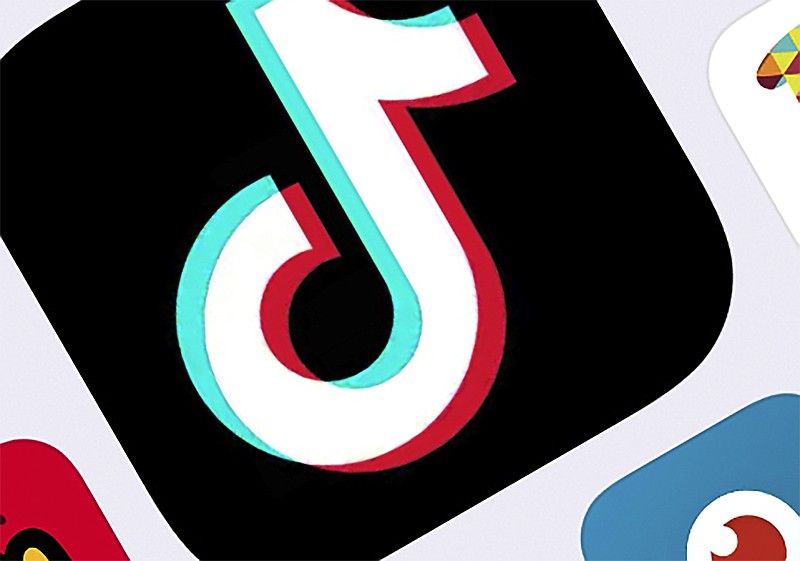NEW YORK (AP) — Microsoft is in advanced talks to buy the U.S. operations of TikTok, the popular Chinese-owned video app that has been a source of national security and censorship concerns, according to a person familiar with the discussions who spoke only on condition of anonymity because of the sensitivity to the negotiations.
The potential deal would be a victory for both companies, making Microsoft Corp. a major player in the social media arena and providing relief to TikTok and its parent company, Bytedance Ltd., a target of President Donald Trump’s.
Trump said Friday he would take action as soon as Saturday to ban TikTok in the United States. Trump’s comments on Friday aboard Air Force One came after published reports the administration is planning to order China’s ByteDance to sell TikTok.
“As far as TikTok is concerned, we’re banning them from the United States,” Trump told reporters Friday on Air Force One as he returned from Florida.
Trump said he could use emergency economic powers or an executive order to enforce the action, insisting, “I have that authority.” He added, “It’s going to be signed tomorrow.”
Microsoft declined to comment.
Reports by Bloomberg News and the Wall Street Journal citing anonymous sources said the administration could soon announce a decision ordering ByteDance to divest its ownership in TikTok.
There have been reports of U.S. tech giants and financial firms being interested in buying or investing in TikTok as the Trump administration sets its sights on the app. The New York Times and Fox Business, citing an unidentified source, first reported Friday that Microsoft is in talks to buy TikTok.
TikTok issued a statement Friday saying, “While we do not comment on rumors or speculation, we are confident in the long-term success of TikTok.”
On Saturday, it posted a short video from its U.S. General Manager Vanessa Pappas saying “We’re not planning on going anywhere.”
ByteDance launched TikTok in 2017, then bought Musical.ly, a video service popular with teens in the U.S. and Europe, and combined the two. A twin service, Douyin, is available for Chinese users.
TikTok’s fun, goofy videos and ease of use has made it immensely popular, and U.S. tech giants like Facebook and Snapchat see it as a competitive threat. It has said it has tens of millions of U.S. users and hundreds of millions globally.
But its Chinese ownership has raised concerns about the censorship of videos, including those critical of the Chinese government, and the potential for sharing user data with Chinese officials.
TikTok maintains it doesn’t censor videos based on topics sensitive to China, and it would not give the Chinese government access to U.S. user data even if asked. The company has hired a U.S. CEO, a former top Disney executive, in an attempt to distance itself from its Chinese ownership.
U.S. national-security officials have been reviewing the Musical.ly acquisition in recent months, while U.S. armed forces have banned their employees from installing TikTok on government-issued phones. Secretary of State Mike Pompeo said this month the U.S. was considering banning TikTok.
These national-security worries parallel a broader U.S. security crackdown on Chinese companies, including telecom providers Huawei and ZTE. The Trump administration ordered the U.S. stop funding equipment from those providers in U.S. networks. It has also tried to steer allies away from Huawei because of worries about the Chinese government’s access to data, which the company has denied it has.
The Trump administration has stepped in before to block or dissolve deals on national-security concerns, including stopping Singapore’s Broadcom from its $117 billion bid for U.S. chipmaker Qualcomm in 2018 in an effort to help retain U.S. leadership in the telecom space. It also told China’s Beijing Kunlun Tech Co. to sell off its 2016 purchase of gay dating app Grindr.
Other countries are also taking action against TikTok. India this month banned dozens of Chinese apps, including TikTok, citing privacy concerns, amid tensions between the countries.
The U.S. government’s poor track record in bolstering Americans’ data privacy more broadly lessens its credibility in taking on Chinese-owned companies, said Susan Ariel Aaronson, a professor at George Washington University and a data governance and national-security expert. The federal government has not passed broad privacy or data-security legislation despite efforts to do so last year, and the Justice Department has tried to undermine encryption — which makes sure only a sender and receiver can see content they exchange — for law-enforcement reasons. Tech companies have pushed back against that.

